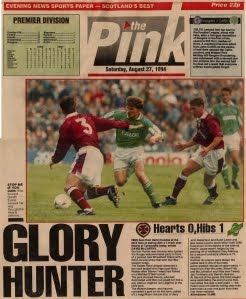
On 9 August 1941, a team of Soviet prisoners of war defeated a Nazi Luftwaffe side 5-3 at the Zenith Stadium in Kiev.
The Soviet team was formed by a group of prisoners who worked at a bakery in occupied Kiev. Nikolai Trusevich, who had been a goalkeeper for Dynamo Kiev before the war, was given a job there sweeping floors by the bakery's manager, Iosif Kordik, who was a Dynamo Kiev supporter. Together, they managed to put together a team of eight former Dynamo Kiev players and three former players from Lokomotiv Kiev.
The team, named FC Start, played their first match on 7 June 1942, defeating another local side 7-2. Two weeks later, despite being malnourished and poorly equipped, Start defeated a team of occupying Hungarian soldiers by the score of 6-2. Over the next few weeks, Start continued a string of remarkable victories over occupying military teams, including an 11-0 win over a Romanian garrison and a 6-0 win over a German side.
According to legend, Start's incredible success drew the attention of Luftwaffe chief Hermann Goering, who sent a crack Luftwaffe side to Kiev. That team, called Flakelf, included several German national team members. Start met them on 6 August 1941 and beat them 5-1. Embarrassed by the defeat and eager to claim revenge, Flakelf demanded a rematch to be held on 9 August.
The rematch was held at Kiev's Zenith Stadium. The referee was a member of the Gestapo who entered the Start locker room prior to the match and told the prisoners "Win and die, lose and survive." Despite the warning, the Ukrainian players won 5-3 and were taken from the field and summarily executed.
In reality, however, the referee was not a Gestapo member and did not issue the famous warning. Nor was Flakelf a crack Luftwaffe squad sent by Goering, but was instead another local German garrison. The match was played fairly and the Ukrainian side were not taken off the field and shot, though several Start players were killed by the Nazis later in the war, along with several other Soviet prisoners.
The rumor of the "Match of Death" persists, however, and was the basis for the film "Escape to Victory" (marketed as "Victory" in the US) starring Sylvester Stallone, Michael Caine, and Pelé.
 On 31 August 1979, Bayern Munich defeated hosts Real Madrid in the opening match of the inaugural Trofeo Santiago Bernabéu.
On 31 August 1979, Bayern Munich defeated hosts Real Madrid in the opening match of the inaugural Trofeo Santiago Bernabéu.





























